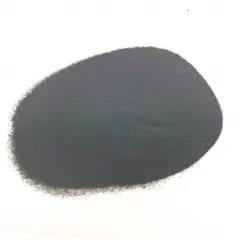Machinery Manufacturing:
It manufactures various wear-resistant parts, such as cutting tools, knives, abrasives, etc.
In addition, silicon carbide titanium is also used to manufacture various advanced parts, such as engine, pump, and valve parts.
Aerospace:
The application of silicon carbide titanium in aerospace is mainly due to its high strength, hardness and excellent corrosion resistance.
It is used to make parts for aircraft and rockets, such as engine components, combustion chamber components, turbine blades, etc.
In aircraft engines, titanium silicon carbide can manufacture high-temperature components such as nozzles, combustion chambers and turbine blades because it can withstand high temperatures and high-speed operating environments.
Cars:
The application of silicon carbide titanium in the automotive field mainly focuses on manufacturing high-performance automotive parts.
It is used to manufacture pistons, valve springs, transmission parts, etc., for automotive engines.
Energy:
In the energy field, silicon carbide titanium is mainly used to manufacture nuclear reactor control rods. It has excellent high-temperature stability and corrosion resistance and can maintain stable performance in high-temperature and robust radiation environments.
In addition, silicon carbide titanium is also used to manufacture solar panels to improve their photoelectric conversion efficiency and service life.
Production Method of Titanium Silicon Carbide T3SiC2 Ti3SiC2 Puffer:
Carbothermal reduction method
The carbothermal reduction method is one of the most commonly used methods to prepare titanium carbide silicon powder; its basic principle is to use titanium powder and silicon powder as raw materials, and the reduction reaction with carbon at high temperature to produce titanium carbide silicon powder. The specific steps are as follows:
Titanium powder and silicon powder are mixed according to a stoichiometric ratio to obtain a mixed powder.
The mixed powder is put into the carbon tube furnace, and high-purity nitrogen is introduced at a high temperature above 1800 ° C, while an appropriate amount of carbon sources, such as methane and acetylene, are introduced.
At high temperatures, titanium and silicon powder are reduced with carbon to produce titanium carbide silicon powder.
The generated titanium carbide silicon powder is collected and post-processed, such as cleaning and drying.
The advantages of the carbothermal reduction method are that it is simple to process, has low cost, has a large yield, and high-purity titanium carbide silicon powder can be prepared. However, this method also has disadvantages, such as high reaction temperature, large energy consumption, the need to use a large amount of nitrogen, and the generated powder may contain impurities such as free carbon.
Mechanical alloying method
The mechanical alloying method is a method of preparing ceramic materials; the basic principle is the metal or non-metallic powder through the high energy ball mill or planetary ball mill and other equipment for vigorous grinding so that the powder alloying reaction, the generation of the required ceramic material. The following are the steps for preparing titanium carbide silicon by mechanical alloying method:
Titanium powder and silicon powder are mixed according to a stoichiometric ratio to obtain a mixed powder.
Put the mixed powder into a high-energy ball mill or planetary ball mill and add an appropriate amount of graphite, stearic acid, and other lubricants.
The mixed powder is firmly ground in the ball mill and is alloyed to produce titanium carbide silicon powder.
The generated titanium carbide silicon powder is collected and post-processed, such as cleaning and drying.
The advantages of the mechanical alloying method are that high-purity and high-performance titanium carbide silicon powder can be prepared, the reaction temperature is low, and the energy consumption is small. However, this method also has disadvantages, such as a long production cycle, a relatively low yield, and the need to use many grinding media and lubricants.
Chemical vapor deposition method
Chemical vapor deposition is a method of preparing ceramic materials; its basic principle is to introduce metal or non-metal elements in gaseous form into the reaction chamber under certain conditions to produce a biochemical reaction, the required ceramic material. The following are the steps for preparing titanium carbide silicon by chemical vapor deposition:
The titanium and silicon sources are put into a high-temperature reaction chamber and introduced in gaseous form.
The titanium and silicon sources undergo chemical reactions to produce titanium carbide silicon film at a specific temperature and pressure.
The generated titanium carbide silicon film is collected and post-processed, such as cleaning and drying.
The advantages of chemical vapor deposition are that high purity and high-performance titanium carbide silicon film can be prepared. The reaction temperature is low, and the energy consumption is small. However, this method also has disadvantages, such as high production cost, relatively low yield, and the need to use many auxiliary materials, such as gases and inert gases.
Titanium Silicon Carbide Ti3SiC2 powder storage conditions:
